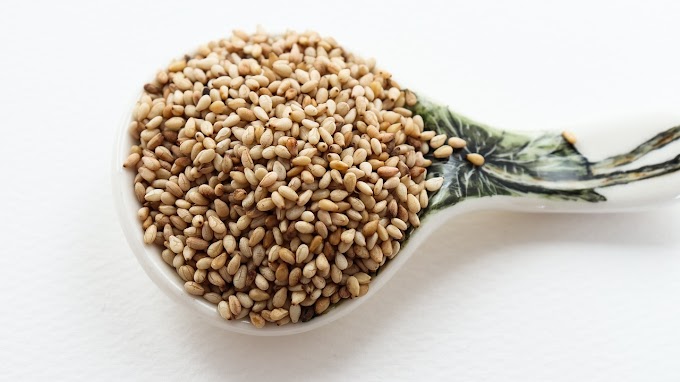Indian System of Holistic Medicine: A Guide to Ayurveda
Introduction
In the bustling world of modern medicine, where scientific advancements and technological innovations reign supreme, Ayurveda stands as a beacon of ancient wisdom. Originating in India over 5,000 years ago, Ayurveda is not just a medical system; it is a way of life that encompasses holistic well-being. This comprehensive guide delves into the depths of Ayurveda, exploring its principles, practices, and profound impact on individuals seeking a holistic approach to health.
Ayurveda
Ayurveda, derived from the Sanskrit words "Ayur" (life) and "Veda" (knowledge), translates to the "Science of Life." It is not merely a traditional medicine system; it is a philosophy that views health as a harmonious balance between the body, mind, and spirit. According to Ayurveda, each individual possesses a unique constitution, or "Prakriti," determined by the combination of the three doshas – Vata, Pitta, and Kapha.The Three Doshas
Vata: Governing the elements of air and space, Vata controls movement in the body and is associated with qualities such as lightness and flexibility. When imbalanced, it can lead to anxiety, insomnia, and digestive issues.Pitta: Representing the elements of fire and water, Pitta governs metabolism and transformation. Pitta-dominant individuals are typically energetic and focused, but an excess can result in conditions like inflammation, acidity, and irritability.
Kapha: Influenced by the elements of water and earth, Kapha provides stability and structure. An imbalance may manifest as lethargy, weight gain, and respiratory issues.

Holistic Healing Practices
Ayurveda employs a myriad of holistic healing practices to restore balance and promote well-being:Dietary Guidelines: Ayurvedic nutrition emphasizes eating according to one's dosha to maintain equilibrium. Foods are classified as heating or cooling, and dietary choices are tailored to individual needs.
Herbal Medicine: Ayurvedic practitioners utilize a vast array of herbs and botanicals to address imbalances and promote healing. Popular herbs include ashwagandha for stress relief, turmeric for its anti-inflammatory properties, and triphala for digestive health.
Yoga and Meditation: Recognizing the intimate connection between the mind and body, Ayurveda prescribes yoga and meditation to cultivate mental clarity, emotional balance, and physical flexibility.
Ayurvedic Massage (Abhyanga): This therapeutic massage involves the use of warm oils and rhythmic strokes to enhance circulation, detoxify the body, and promote relaxation.
Detoxification (Panchakarma): Panchakarma is a series of cleansing therapies aimed at eliminating toxins from the body. This process includes practices such as oil massages, herbal enemas, and nasal irrigation.
Modern Applications and Scientific Support
While rooted in ancient traditions, Ayurveda has garnered attention from the scientific community. Research studies have explored the efficacy of Ayurvedic practices in managing various conditions, including stress, arthritis, and digestive disorders. As the demand for holistic approaches to health grows, Ayurveda continues to integrate with conventional medicine, providing a complementary and personalized approach to wellness.Conclusion
Ayurveda, the ancient Indian system of holistic medicine, transcends the boundaries of conventional healthcare by embracing the interconnectedness of the body, mind, and spirit. With its emphasis on personalized well-being, balance, and natural healing modalities, Ayurveda offers a timeless approach to health that resonates with individuals seeking harmony in an increasingly fast-paced world. As we navigate the complexities of modern life, the wisdom of Ayurveda beckons, offering a path to holistic wellness and a harmonious existence.FAQ's
1. What is Ayurveda?Ayurveda, originating from the Sanskrit words "Ayur" (life) and "Veda" (knowledge), is an ancient Indian system of holistic medicine. It is a comprehensive approach to health that considers the balance of the body, mind, and spirit.
2. How does Ayurveda view health?
2. How does Ayurveda view health?
Ayurveda views health as a harmonious balance between the three doshas – Vata, Pitta, and Kapha – and emphasizes individualized approaches to maintain this equilibrium.
3. What are the three doshas in Ayurveda?
3. What are the three doshas in Ayurveda?
The three doshas are Vata (air and space), Pitta (fire and water), and Kapha (water and earth). These doshas represent different combinations of the five elements and influence various physiological and psychological functions in the body.
4. How does Ayurveda recommend dietary choices?
4. How does Ayurveda recommend dietary choices?
Ayurveda recommends personalized dietary choices based on an individual's dosha. Foods are categorized as heating or cooling, and the diet is tailored to maintain balance and promote well-being.
5. Can Ayurveda be integrated with modern medicine?
5. Can Ayurveda be integrated with modern medicine?
Yes, Ayurveda can be integrated with modern medicine. Many healthcare practitioners recognize the complementary nature of Ayurvedic practices and their potential to enhance overall well-being.
6. Are there scientific studies supporting Ayurvedic practices?
6. Are there scientific studies supporting Ayurvedic practices?
Yes, scientific studies have explored the efficacy of Ayurvedic practices in managing various conditions. Research has focused on stress management, arthritis, digestive disorders, and other health-related issues.
7. What is Panchakarma in Ayurveda?
7. What is Panchakarma in Ayurveda?
Panchakarma is a series of cleansing therapies aimed at eliminating toxins from the body. It includes practices such as oil massages, herbal enemas, and nasal irrigation to promote detoxification.
8. How does Ayurveda address mental well-being?
8. How does Ayurveda address mental well-being?
Ayurveda recognizes the connection between the mind and body. Practices such as yoga and meditation are recommended to cultivate mental clarity, emotional balance, and overall mental well-being.
9. Can Ayurveda benefit those with specific health conditions? Ayurveda's personalized approach allows it to be adapted to various health conditions. Individuals with specific health concerns, such as stress, arthritis, or digestive issues, may find Ayurvedic practices beneficial as part of their holistic wellness plan.
10. Is Ayurveda only for individuals of Indian origin?
9. Can Ayurveda benefit those with specific health conditions? Ayurveda's personalized approach allows it to be adapted to various health conditions. Individuals with specific health concerns, such as stress, arthritis, or digestive issues, may find Ayurvedic practices beneficial as part of their holistic wellness plan.
10. Is Ayurveda only for individuals of Indian origin?
No, Ayurveda is not limited to individuals of Indian origin. It is a universal system of holistic medicine that can be embraced by people of all backgrounds and cultures seeking a holistic approach to health and well-being.







